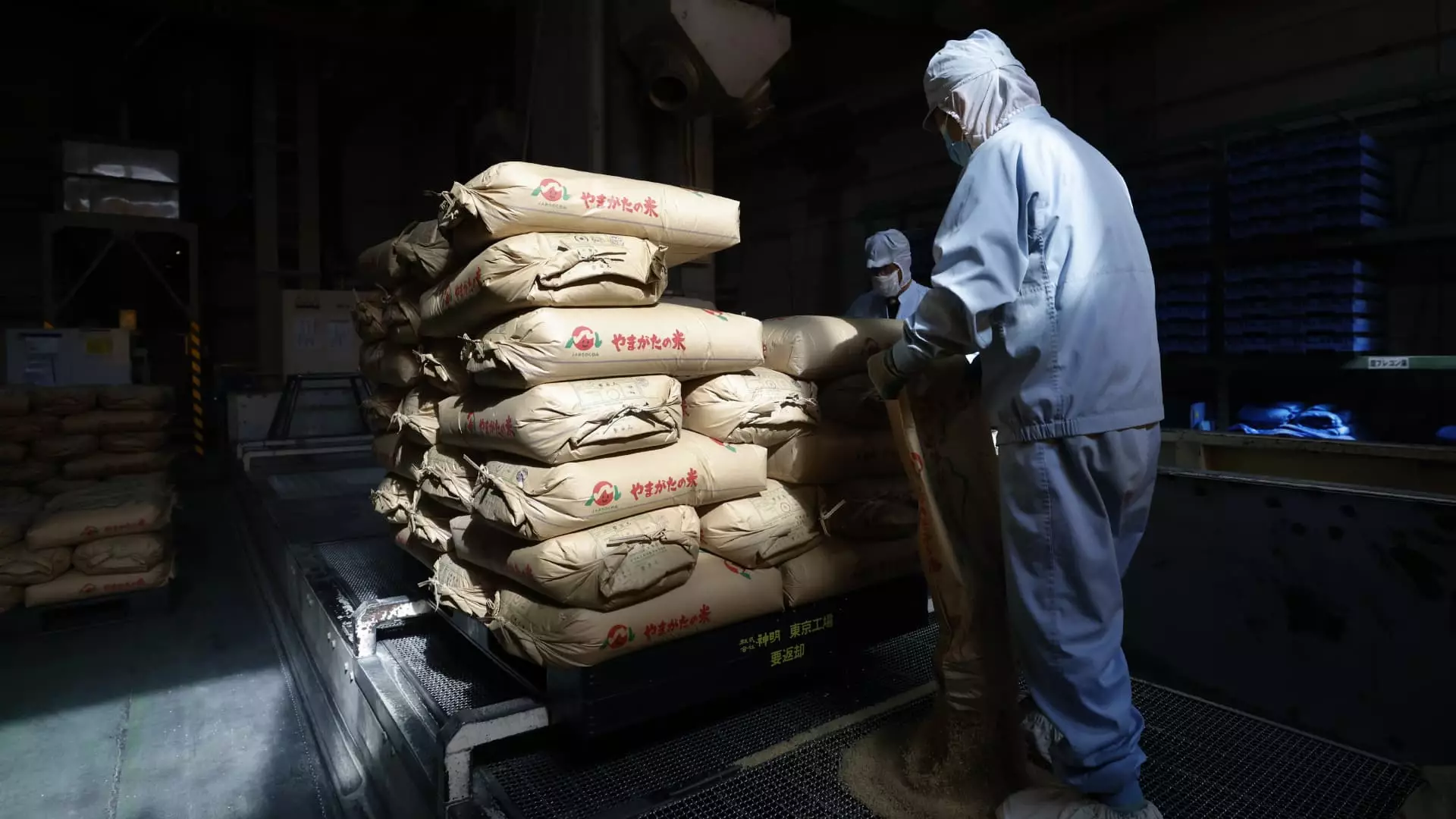Japan has recently witnessed an alarming phenomenon in its rice market, where prices surged by a staggering 101.7% in May compared to the previous year. This remarkable increase has captured public attention and sparked conversations about the larger implications for the nation. This is not an isolated incident; rice prices had already jumped 98.4% in April and 92.1% in March. Together, these unprecedented fluctuations suggest that the country may be on the verge of a rice crisis, one characterized by economic turmoil and social distress. Rice is not just another item on a grocery list; it is a staple deeply woven into the fabric of Japanese culture and daily life. Such dramatic price changes could have profound consequences for households across the nation.
Inflation: The Uninvited Guest
This surge in rice prices is symptomatic of a broader inflationary environment. Japan’s core inflation rate climbed to 3.7% in May, surpassing economists’ expectations and marking the highest level since January 2023. Such volatility suggests that consumers may soon find themselves grappling with higher costs of living, exacerbating economic inequalities within society. The notion that inflation can be controlled through monetary policy is being called into question as this price rise persists, especially when food—a basic necessity—is heavily impacted. This pervasive inflation is no longer an abstract economic term; it represents a lived reality for millions of Japanese families trying to make ends meet.
The Government’s Reactive Measures
Faced with skyrocketing rice prices, the Japanese government has had to resort to emergency stockpiles to stabilize this crucial staple. On the surface, this seems like a reasonable approach to address an immediate disaster. However, emergency measures can only serve as temporary solutions. The reservoir of stockpiled rice will not last indefinitely and could soon run dry if this trend continues. Those advocating for proactive rather than reactive policies may argue that more strategic interventions are necessary to address the systemic issues plaguing Japan’s agricultural sector. Will the government invest in sustainable farming practices and incentivize local rice producers? Or are they merely committed to short-term fixes that poke at the problem but fail to provide a lasting solution?
Economic Outlook: A Dismal Future?
The implications of these developments extend beyond the kitchen table. With the Bank of Japan holding interest rates at a precarious low of 0.5% while grappling with core inflation issues, the central bank appears to be stuck between a rock and a hard place. BOJ Governor Kazuo Ueda’s attempts to assure the public of a forthcoming stabilization do little to assuage the fears surrounding the ongoing inflation crisis. How can the economy recover when fundamental indicators suggest a contraction is imminent? Japan’s GDP shrank by 0.2% in the first quarter of the year due to declining exports. Such economic downturns signify more than numbers on paper; they reflect real-world consequences for businesses and workers alike.
The Ripple Effects: Social Consequences
As rice prices rise and inflation persists, the socio-economic landscape is set to change dramatically. For lower-income families, the burden may become untenable. They are often the first to feel the impact of rising prices, squeezing their already tight budgets and compromising their quality of life. Could we see an uptick in social unrest? It is essential to consider the public sentiment that sways like a pendulum in response to economic disparities. If the government fails to address this pressing issue meaningfully, resentment may bubble over, and calls for change will grow louder.
A Call to Action: Responsibility Beyond the Government
The responsibility to confront these challenges does not rest solely on the government’s shoulders. Businesses, particularly those in the food industry, have a role to play in mitigating the impact of rising prices on consumers. Transparency in pricing, ethical sourcing of ingredients, and offering fair wages to workers should all be prioritized. Additionally, the public must remain engaged and vocal about the pressing issues affecting their lives. The rice crisis is a litmus test for Japan; how it navigates these turbulent waters will determine not just its economic health but also the integrity of its social fabric. The time to act is now, and the stakes are exceedingly high.


Leave a Reply